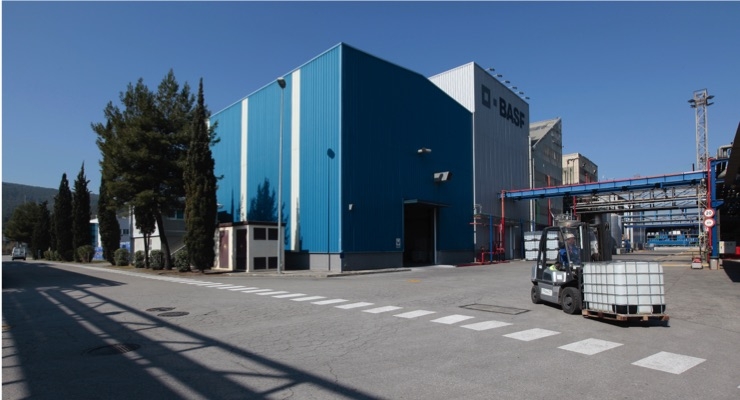01.23.20
BASF announced a single-digit million-euro investment in the capacity expansion of water-based polyurethane dispersions at its Castellbisbal site in Spain.
The expansion will allow BASF to increase its production capacity by 30 percent.
“We want to continue to provide our customers with high-quality polyurethane dispersions and help them grow by ensuring supply reliability,” said Frank Hezel, VP Resins & Additives EMEA at BASF.
Polyurethane dispersions constitute an important addition to the acrylate dispersions business. By expanding its portfolio in the field of adhesives, parquet flooring, automotive and industry coatings, BASF is making a valuable contribution to the change from solvent-based coating systems to environmentally friendlier and more sustainable water-based systems.
Automotive & Industrial Platform
The production of modern cars involves the use of an ever-increasing mixture of materials. Apart from steel and aluminum, for example, carmakers are increasingly using various types of plastic. This is where the adhesion feature of the entire coating structure comes into play to ensure good surface quality. This also shows BASF had gone one step further to drive supreme quality. The new Basonol PU platform ensures that the primers and base coats used for automobiles have better adhesion qualities and feature a smoother look. The reduced need for solvents constitutes an important contribution to sustainability.

Adhesives Platform
In the packaging industry, there is a demand for sustainable packaging. The plan is to use the Epotal Eco product line to produce water-based compostable raw materials for adhesives at Castellbisbal that are going to play a decisive role in particular regarding the development of bio-degradable packaging material. Epotal Eco is ideally suited in the production of multi-layer films for flexible packaging (e.g. bags of chips) based on biodegradable plastic material, which may be a solution for the new challenges faced by the packaging industry. Furthermore, the capacity expansion at Castellbisbal can also take into account the increasing publicly voiced concern about plastic waste as well as new regulatory challenges such as the much tighter EU recycling quotas.
In addition, the expansion of capacities can also be regarded as a response to the ever-increasing demand for Luphen brands that are used for living spaces and in the car industry.
The expansion will allow BASF to increase its production capacity by 30 percent.
“We want to continue to provide our customers with high-quality polyurethane dispersions and help them grow by ensuring supply reliability,” said Frank Hezel, VP Resins & Additives EMEA at BASF.
Polyurethane dispersions constitute an important addition to the acrylate dispersions business. By expanding its portfolio in the field of adhesives, parquet flooring, automotive and industry coatings, BASF is making a valuable contribution to the change from solvent-based coating systems to environmentally friendlier and more sustainable water-based systems.
Automotive & Industrial Platform
The production of modern cars involves the use of an ever-increasing mixture of materials. Apart from steel and aluminum, for example, carmakers are increasingly using various types of plastic. This is where the adhesion feature of the entire coating structure comes into play to ensure good surface quality. This also shows BASF had gone one step further to drive supreme quality. The new Basonol PU platform ensures that the primers and base coats used for automobiles have better adhesion qualities and feature a smoother look. The reduced need for solvents constitutes an important contribution to sustainability.

Adhesives Platform
In the packaging industry, there is a demand for sustainable packaging. The plan is to use the Epotal Eco product line to produce water-based compostable raw materials for adhesives at Castellbisbal that are going to play a decisive role in particular regarding the development of bio-degradable packaging material. Epotal Eco is ideally suited in the production of multi-layer films for flexible packaging (e.g. bags of chips) based on biodegradable plastic material, which may be a solution for the new challenges faced by the packaging industry. Furthermore, the capacity expansion at Castellbisbal can also take into account the increasing publicly voiced concern about plastic waste as well as new regulatory challenges such as the much tighter EU recycling quotas.
In addition, the expansion of capacities can also be regarded as a response to the ever-increasing demand for Luphen brands that are used for living spaces and in the car industry.



